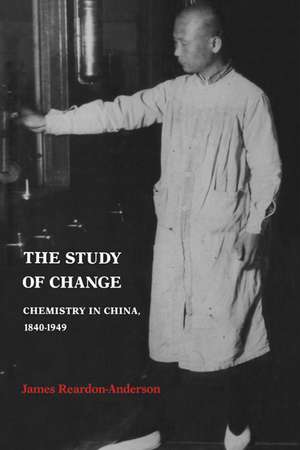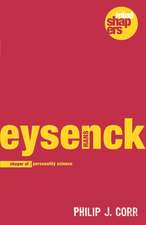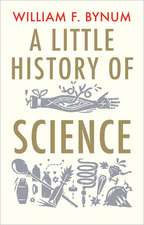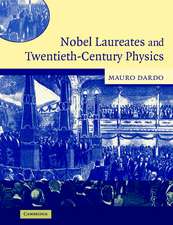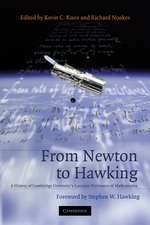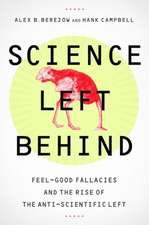The Study of Change: Chemistry in China, 1840–1949
Autor James Reardon-Andersonen Limba Engleză Paperback – oct 2003
| Toate formatele și edițiile | Preț | Express |
|---|---|---|
| Paperback (1) | 429.18 lei 6-8 săpt. | |
| Cambridge University Press – oct 2003 | 429.18 lei 6-8 săpt. | |
| Hardback (1) | 868.71 lei 6-8 săpt. | |
| Cambridge University Press – 21 feb 1991 | 868.71 lei 6-8 săpt. |
Preț: 429.18 lei
Nou
Puncte Express: 644
Preț estimativ în valută:
82.13€ • 85.85$ • 69.40£
82.13€ • 85.85$ • 69.40£
Carte tipărită la comandă
Livrare economică 07-21 martie
Preluare comenzi: 021 569.72.76
Specificații
ISBN-13: 9780521533256
ISBN-10: 0521533252
Pagini: 468
Dimensiuni: 152 x 229 x 26 mm
Greutate: 0.68 kg
Editura: Cambridge University Press
Colecția Cambridge University Press
Locul publicării:New York, United States
ISBN-10: 0521533252
Pagini: 468
Dimensiuni: 152 x 229 x 26 mm
Greutate: 0.68 kg
Editura: Cambridge University Press
Colecția Cambridge University Press
Locul publicării:New York, United States
Cuprins
Abbreviations; Preface; Introduction; Part I. Science and Self-Strengthening, 1840–1895: 1. The advocates: chemical translators, John Fryer and Hsü Shou; 2. Changing Chinese: chemical translations of the Kiangnan Arsenal; 3. The limits of change: science, state and society in the nineteenth century; Part II. The Interregnum, 1895–1927: 4. First-generation scientists: makers of China's new culture; 5. Learning about science; 6. The beginning of chemical research; 7. Chinese entrepreneurs and the rise of the chemical industry; Part III. The Nanking Decade, 1927–1937: 8. Science and the state during the Nanking Decade; 9. Scientific education: the balance achieved; 10. Scientific research: the balance threatened; 11. The chemical industry and the limits of growth; Part IV. The War, 1937–1945: 12. Science in nationalist China: the wartime experience; 13. Science in communist China I: innovations in industry; 14. Science in communist China II: scientists versus the state; 15. Conclusion; Appendix; Glossary; Bibliography; Index.
Recenzii
"...an immensely rewarding book....leaves the reader, at the end of this comprehensive and original study, brimming with ideas about what has just been read, and with a myriad new questions to ask about what had seemed familiar terrain. That is just what good scholarship should do." Jonathan Spence, Journal of Asian Studies
"...raises many interesting issues about the creation of a new paradigm and scientific community in China, and the relationship of the scientific enterprise to the modern nation-state....an important and entertaining account of a neglected area of modern Chinese history which will be of interest to sinologists, historians and sociologists of science." David Wright, Times Higher Education Supplement
"The author combines a sure knowledge of Chinese language and culture with a mastery of modern chemistry which is refreshing to those of us brought up to think of the two cultures. He writes attractively and readily on a topic which many authors would have turned into a mire of scholarly pedantry....if Chinese society has a special attraction for you and if you are interested in seeing science, and particularly chemistry, in a social setting then this study has much to offer." A. R. Butler, Chemistry in Britain
"...an exhaustive and thoroughly professional study of the introduction of Western chemical science to China from the 1840s through the creation of the People's Republic.....an important contribution." Steven A. Leibo, American Historical Review
"No one in the West of in China has come close to Reardon-Anderson in giving such a comprehensive description of the history of modern science in China." William J. Haas, ISIS
"...raises many interesting issues about the creation of a new paradigm and scientific community in China, and the relationship of the scientific enterprise to the modern nation-state....an important and entertaining account of a neglected area of modern Chinese history which will be of interest to sinologists, historians and sociologists of science." David Wright, Times Higher Education Supplement
"The author combines a sure knowledge of Chinese language and culture with a mastery of modern chemistry which is refreshing to those of us brought up to think of the two cultures. He writes attractively and readily on a topic which many authors would have turned into a mire of scholarly pedantry....if Chinese society has a special attraction for you and if you are interested in seeing science, and particularly chemistry, in a social setting then this study has much to offer." A. R. Butler, Chemistry in Britain
"...an exhaustive and thoroughly professional study of the introduction of Western chemical science to China from the 1840s through the creation of the People's Republic.....an important contribution." Steven A. Leibo, American Historical Review
"No one in the West of in China has come close to Reardon-Anderson in giving such a comprehensive description of the history of modern science in China." William J. Haas, ISIS
Descriere
Describes the introduction and development of chemistry in China in the late 19th and early 20th century.
